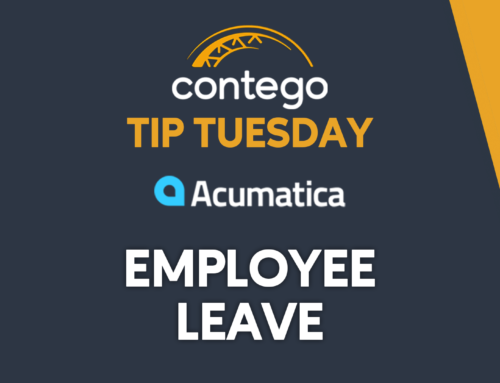The Cloud is Here to Stay!
Cloud-based computing, otherwise known as Software as a Service or SaaS, has rapidly taken over the world. Often referred to as “The Cloud”, this computing system allows users to access software or applications that run on a shared computing resource via the internet. Processing power, disk space, memory, and more are all elements that can be processed on the cloud. The cloud is maintained in remote data centers dedicated to hosting a plethora of applications across a multitude of platforms. Cloud computing has opened the door to new efficiencies across all types of industries, especially in the Enterprise Resource Planning (ERP) space
The Progression of The Cloud
Cloud computing is rapidly advancing, and new technology is helping speed up this process. Our view is that the world will soon be run through the Cloud.
Since the 1970s, service firms have used massive mainframes to support and run applications while providing data storage for companies that would otherwise rent computer resources and storage space. This term was known as “time-sharing”.
Despite the ease of use, time-sharing lost its charm. As computer hardware decreased in cost, more companies gravitated away from this early cloud-like model. Since this point, the norm has been for companies to house their own IT teams and manage an array of hardware and software in their facilities. This process was expensive, time-consuming, and could lead to frequent decreases in company efficiency—systems that break require time-consuming and expensive maintenance.
Fortunately for the businesses of today, technology and Internet access have advanced while costs have decreased. Companies can tap into massive amounts of data storage for low monthly fees without worrying about maintaining on-site data networks or frequently backing up data. These new advances are especially noteworthy in the new COVID-19 world, where employees need to work from any location at any time.
Cloud ERP
Cloud ERP (Enterprise Resource Planning) allows users to access the software anywhere and anytime over the internet. Cloud ERP is scalable and has lower upfront costs when compared to ERP systems that are maintained on location. Most importantly, due to the nature of Cloud ERP, data and reporting can be accessed on a multitude of devices from any location through an Internet connection.
Although there is technically only one difference between Cloud ERP and on-site ERP–where the software is physically located–other significant differences do exist. This post will go into the key details of Cloud ERP and why this solution may be right for your organization.
The Cloud is especially valuable for small and medium-sized enterprises (SMEs) because it provides full access to the tools required to run a lean operation without the upfront costs associated with on-site hardware or software solutions. Choosing the right cloud provider can help a business rapidly scale their business while keeping costs low and efficiencies high.
The Advantages of Cloud ERP Systems
Cloud ERP has been proven to reduce costs (link to cost reduction story) because it:
- Reduces or completely avoids upfront costs for ALL computing infrastructure such as hardware and data servers.
- Reduces or eliminates the need for internal IT support because IT support is provided by the data center.
- Removes the need for software license fees. Monthly subscriptions are the norm for Cloud providers.
- Constant upgrades and on-demand maintenance by the data provider mean you don’t need to pay exorbitant maintenance fees if something goes wrong.
Cost reduction is great, but the most important benefits of Cloud ERP go beyond simply cost savings; these include:
- Paying for what you need and nothing else. These systems are modular and fit with YOUR NEEDS.
- A fixed monthly rate allows your business to focus on running the business, not managing ERP costs.
- Taking advantage of Cloud ERP immediately! These systems are fast and easy to implement, so your business can get right back to work without worrying about complicated implementation requirements.
- Cloud ERP offers increased security because your data isn’t stored locally but on the cloud.
- Peace of mind from frequent data backups, allowing you to recover necessary info fast and accurately.
- Access from anywhere! This is especially beneficial in the remote world of COVID-19. Cloud ERP allows you and your team to work from any device, anywhere, at any time.
Cloud ERP provides an extensive list of benefits, however, not all Cloud ERPs are the same. For more information on Cloud ERP software, click here.





Leave A Comment